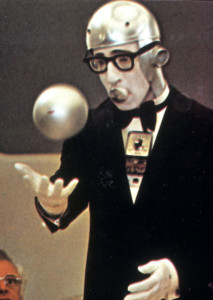Food safety is behavior-based but what if a robot is doing the cooking for you?
Kevin Smith of Pasadena Star News reports:
CaliBurger has a new chef, but he won’t be needing a bathroom break. Or a smoking break. Or any breaks.
The “chef” is Flippy, an industrial robotic arm manufactured by Fanuc and brought to life by Miso Robotics‘ cloud-connected artificial intelligence platform. The automated kitchen assistant begins work this week at the Pasadena restaurant, and the technology is on track to be expanded to all 10 U.S.-based CaliBurger locations by the end of the year.
CaliBurger has another drive-through location in the Bakersfield area, and a Santa Clarita restaurant is opening soon.
How it works
David Zito, co-founder and CEO of Pasadena-based Miso Robotics, explained how the technology works:
“This combines thermal vision, 3D and computer vision data, and we use machine-learning algorithms,” he said. “It’s really a deep-learning technique where we can take all of that data and train Flippy to see what’s happening on the grill. He can react to it to make sure he’s cooking the burgers consistently every time.”
When a kitchen worker arranges patties on the grill, Flippy can detect where they are. The robot knows the temperature of the grill as well as the temperature of each patty, so he can turn them over at the right time and remove them from the grill when they are properly cooked, Zito said. That lets the kitchen staff know when to place cheese on top or when to dress the burgers.
The technology also enables Flippy to switch from using one spatula for raw meat to another for cooked meat. The robot can also clean spatulas while cooking and wipe the surface of the grill with a scraper, Zito said.
The process is precise, efficient, food-safe — and above all, consistent, he said.
The mind of a grill chef
“Over time, we can train Flippy to have the mind of a grill chef,” Zito said. “John has had struggles to staff the grill, and that’s an important role when you’re making the CaliBurger, their signature dish,” he said, referring to John Miller, chain chairman and CEO of the chain and related companies.
“But this is not about labor replacement. It’s about augmenting the staff that’s in the kitchen,” he added.
The robotic arms sell for $60,000 to $100,000, depending on the specific tasks a restaurant needs it to perform. Miso also charges a 20 percent fee per year for the use of its cloud-connected learning platform.
“It continually learns,” Zito said. “It gets better over time.”
The rest of the story can be found here


 However, Katie did confess she now misses my homemade-from-scratch buckwheat pancakes with berries.
However, Katie did confess she now misses my homemade-from-scratch buckwheat pancakes with berries. .jpg)